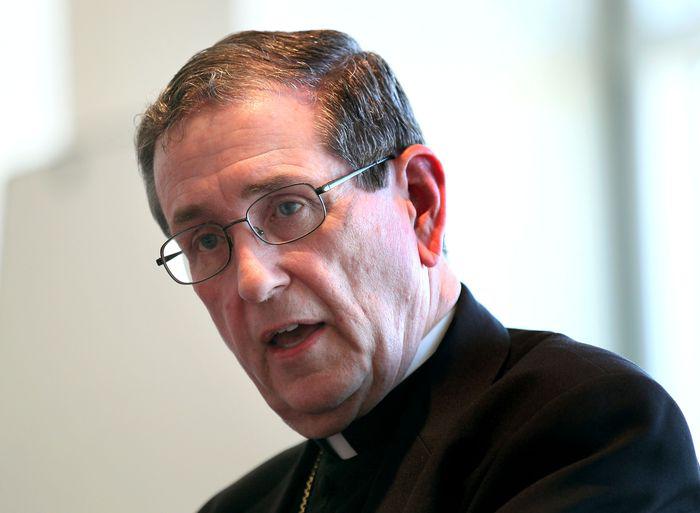|
Editorial: Remembering Bishop Lennon, 1947-2019
Cleveland Plain Dealer
The Catholic catechism says a bishop is to act “as Christ’s vicar.” But circumstances force some, including the late Richard G. Lennon, emeritus Catholic bishop of Cleveland, to be crisis managers, too. Bishop Lennon, born into a family of suburban Boston firefighters, died Oct. 29 at age 72, apparently from complications of vascular dementia. The condition had forced him to retire in 2016 after ten years as Cleveland’s bishop. As bishop of a diocese serving eight Northeast Ohio counties, Bishop Lennon faced heavy challenges. Population is one. The number of Catholics is dropping nationwide, the Pew Research Center reports, adding that Catholicism has had “a greater net loss due to religious switching than [any] other [U.S.] religious tradition.” American Catholicism’s geographic center also is moving South and West. And, as recognized in the choice of Lennon’s successor, Nelson J. Perez, a growing proportion of adult Catholics claims Hispanic heritage. Those changes have led bishops to merge or close Catholic parishes in the Midwest and Northeast, decisions that understandably sadden or anger parishioners. Three years after arriving in Cleveland, Lennon ordered 50 parishes closed. Closings were foreseen during the tenure of Lennon’s predecessor, Bishop Anthony M. Pilla. Lennon’s fate, arguably, was to be the bearer of bad news. Rome reversed 12 closings because the diocese hadn’t followed proper procedures. Lennon didn’t appeal. In other ways, Lennon also looked to the future of his flock. In 2014, he abolished a fee of about $450 that the diocese had charged Catholics who applied for marriage annulments, saying that he wanted to “encourage greater participation in the life of the church” by divorced and remarried Catholics. He worked hard to guarantee the financial security of the diocese and its parishes. When Pope Benedict XVI sent Lennon to Cleveland in 2006, Lennon had been an auxiliary bishop in Boston, epicenter of a clergy sexual abuse scandal. Cardinal Bernard Law, Boston’s archbishop, resigned. Massachusetts’ attorney general said Law and five auxiliaries – but not Lennon – worried more about priest-abusers than victims. Lennon briefly became apostolic administrator (Boston’s acting archbishop). Pope John Paul II named Cardinal Sean O’Malley, a Lakewood-born Capuchin, as Law’s permanent successor. Three years later, Lennon became the chief pastor of Greater Cleveland’s 700,000 Roman Catholics. Judging a leader’s life requires time. But Richard Lennon, shouldering the thankless tasks he faced, appears to have been as much the servant as the master of his flock – as a good shepherd should be.
|
.
Any original material on these pages is copyright © BishopAccountability.org 2004. Reproduce freely with attribution.
